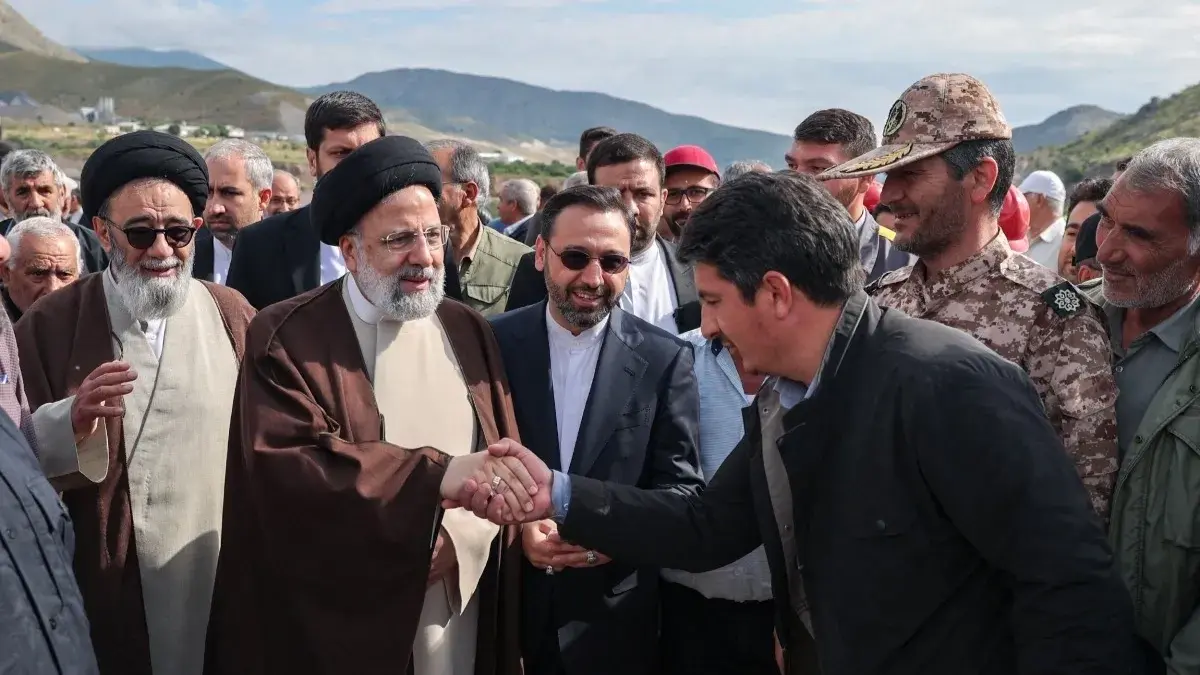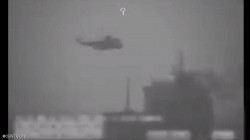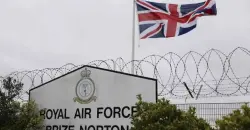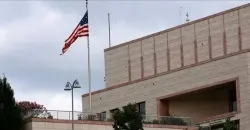U.S. Defense Secretary denies American involvement in Iranian President's fatal helicopter crash

Shafaq News / U.S. Defense Secretary Lloyd Austin stated that the United States had no involvement in the helicopter crash that claimed the life of Iranian President Ebrahim Raisi in northwestern Iran.
When asked by journalists about the possibility of Iran blaming Israel or the U.S. for the incident, Austin responded, "The United States had no role to play in this incident, and that is a clear and simple fact."
He added that he had no knowledge of the cause of the helicopter crash and did not anticipate any broader impact on regional security. "I cannot speculate on the cause of the crash," Austin told reporters.
The United States, primarily due to logistical reasons, was unable to fulfill an Iranian request for assistance following the helicopter crash. However, Washington did extend its condolences.
The U.S. Department of State revealed this rare request from Iran, which considers the United States and Israel as major adversaries, during a press briefing.
State Department spokesperson Matthew Miller told reporters, "The Iranian government requested our assistance. We made it clear that we would provide help, as we do in response to any request from a foreign government in such situations." He added, "Ultimately, largely for logistical reasons, we were unable to provide that assistance."
Miller stated that Raisi's death did not alter the U.S.'s fundamental stance toward Iran. "The United States expresses its official condolences on the death of Iranian President, Foreign Minister Hossein Amir-Abdollahian, and other members of their delegation in a helicopter crash in northwestern Iran," the State Department spokesperson said in a statement.
"In a time when Iran is choosing a new president, we reiterate our support for the Iranian people and their struggle for human rights and fundamental freedoms," he added.
White House spokesperson John Kirby described the late Iranian president Ebrahim Raisi as "a man with blood on his hands," holding Raisi responsible for "horrible human rights abuses" in Iran, despite the U.S. offering its condolences to Tehran.
Former Iranian Foreign Minister Mohammad Javad Zarif accused the United States of causing the helicopter crash by imposing sanctions on Iran's aviation sector, preventing the import of aircraft parts and maintenance. According to the Iranian news agency, Zarif's accusation stems from the U.S. sanctions that inhibit Iran from importing aircraft, parts, and maintenance services, including for the American-made Bell 212 helicopter that Raisi was aboard.
Zarif emphasized that despite these challenges, the Iranian people have stood by the regime and the revolution in the country's difficult circumstances, expressing confidence that conditions would improve and that the people would understand better circumstances ahead.
The Bell 212, a twin-engine, twin-rotor helicopter manufactured by Bell Helicopter, was introduced in 1968. It features a single pilot seat and can carry up to 14 passengers, with an internal capacity of 6.23 cubic meters and a maximum payload of 2,268 kilograms.
In 2021, Transport Canada issued a warning about this model, suspending its use in the country until the blade attachment bolts, which were found to be faulty, could be inspected and replaced to ensure proper functionality.
The helicopter went off radar on Sunday afternoon while flying over a steep, forested area in difficult weather conditions with rain and heavy fog.
The Iranian President, Foreign Minister, and another seven were found dead after an hours-long search in the northwest of the country.
Raisi was returning from the inauguration ceremony of a joint border dam with Azerbaijan, where he had met Azerbaijani President Ilham Aliyev on Sunday.
Iran declared a national mourning period for President Raisi, lasting five days, on Monday.





